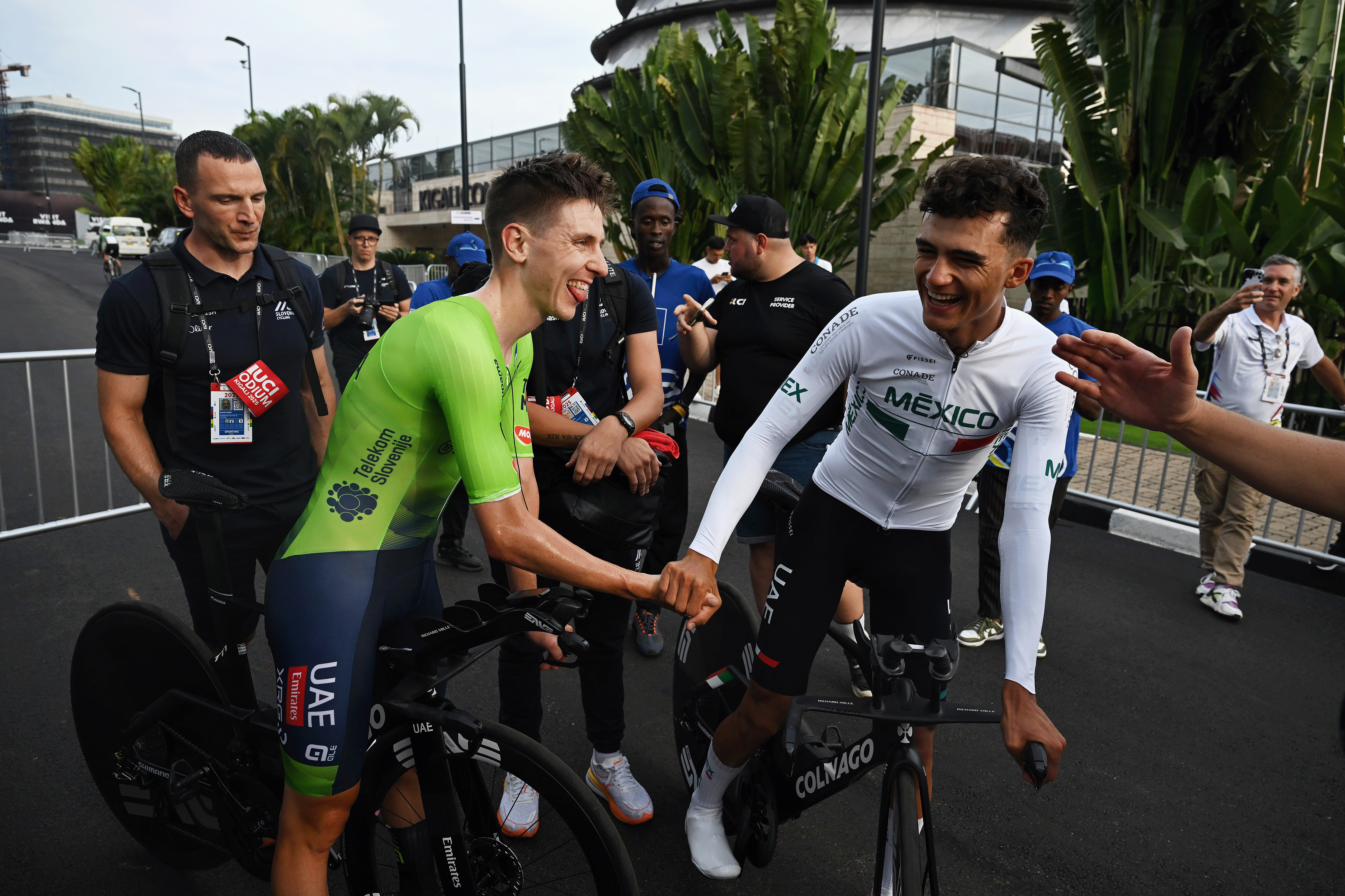Who are cycling's best male sprinters of all time?
Which of pro cycling's speedsters make the cut?
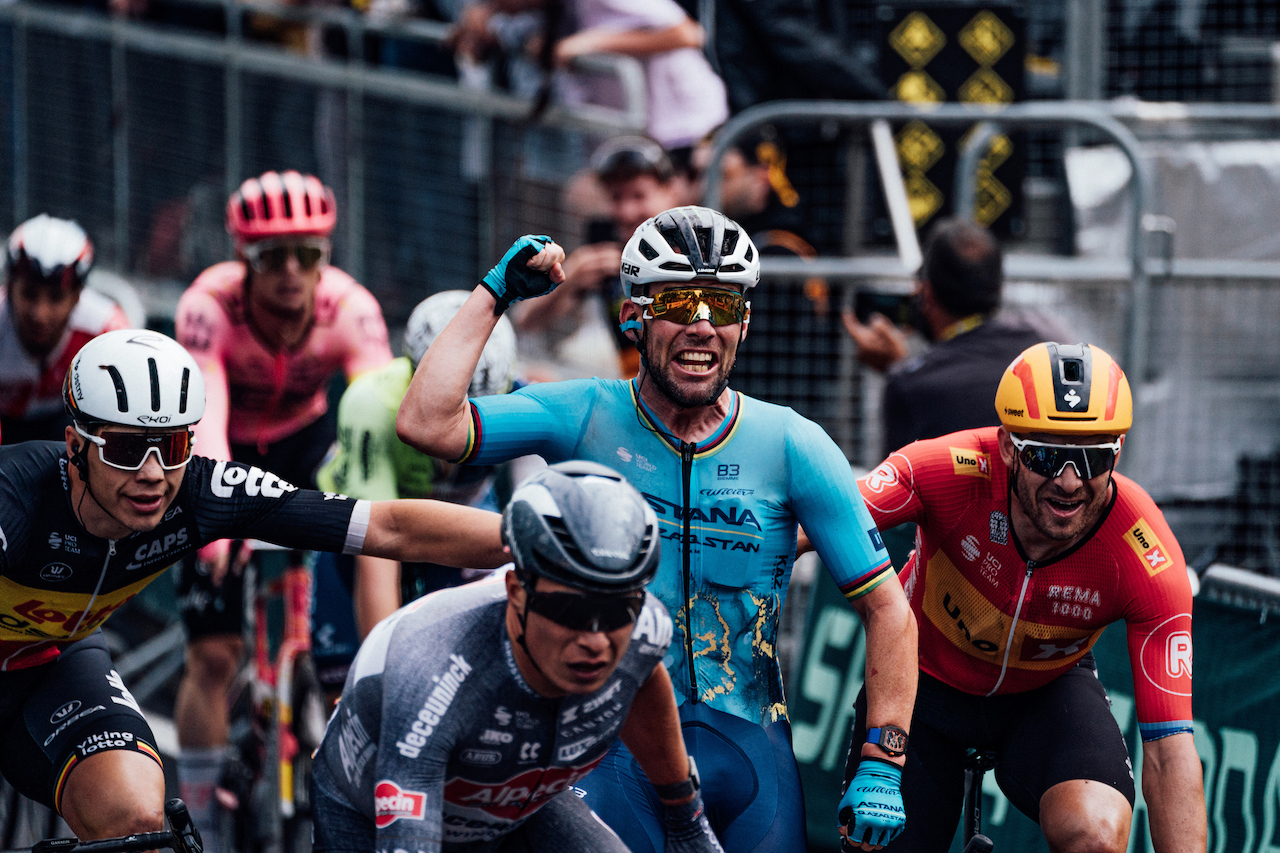
The latest race content, interviews, features, reviews and expert buying guides, direct to your inbox!
You are now subscribed
Your newsletter sign-up was successful
What distinguishes the greatest sprinters in cycling history? Surely, their palmarès. A massive amount of Grand Tour stages, a handful of points competition jerseys, a few Classic wins and possibly a World Championship victory or two make them the fastest men in professional cycling.
Our list was originally compiled in 2011, but much has changed since then. Sprinters like André Greipel, Marcel Kittel, Caleb Ewan, Sam Bennett, Elia Viviani and Michael Matthews have all won stages in all three Grand Tours. Are they the best of all time? It's tough to narrow down the list.
In 2023, the top sprinter appeared to be Jasper Philipsen, who won multiple Tour de France stages. But in the grand scheme of things, he's still in the early stages and not yet among the greatest.
That honour belongs to riders like Mark Cavendish – who following several years of misfortune, took stage 5 of the 2024 Tour de France to become the greatest sprinter in Tour de France history, without question.
More than 100 years have passed since the creation of the Tour de France and there have been many brilliant and prolific sprinters who have graced the race.
For those of our readers who still remember André Darrigade or Rik van Steenbergen, we had to dig deeper in the history books - and discovered that the task of assembling an all-time list of best sprinters would not be so easy.
Bearing in mind that the points competition was only created in 1953, we had to take into account that bunch sprint finishes actually are a recent phenomenon of modern cycling, and that teams were not organised to that effect during the first part of the last century.
The latest race content, interviews, features, reviews and expert buying guides, direct to your inbox!
And what about those riders who combined fast finishing speed with the strength to win even the hillier Classics, such as Rik van Looy or Sean Kelly? Plus, of course, the legendary Eddy Merckx, whose all-encompassing palmarès also includes many sprint victories and points jerseys? Did they also fall into the sprinters category?
We decided to include only one of them in our ranking - Sean Kelly for taking four green jerseys - and to concentrate on more contemporary stars such as Mark Cavendish, Peter Sagan, Robbie McEwen, Oscar Freire, and Alessandro Petacchi: the masters of fast finishing speeds, modern lead-out trains and perfect positioning.
Mark Cavendish
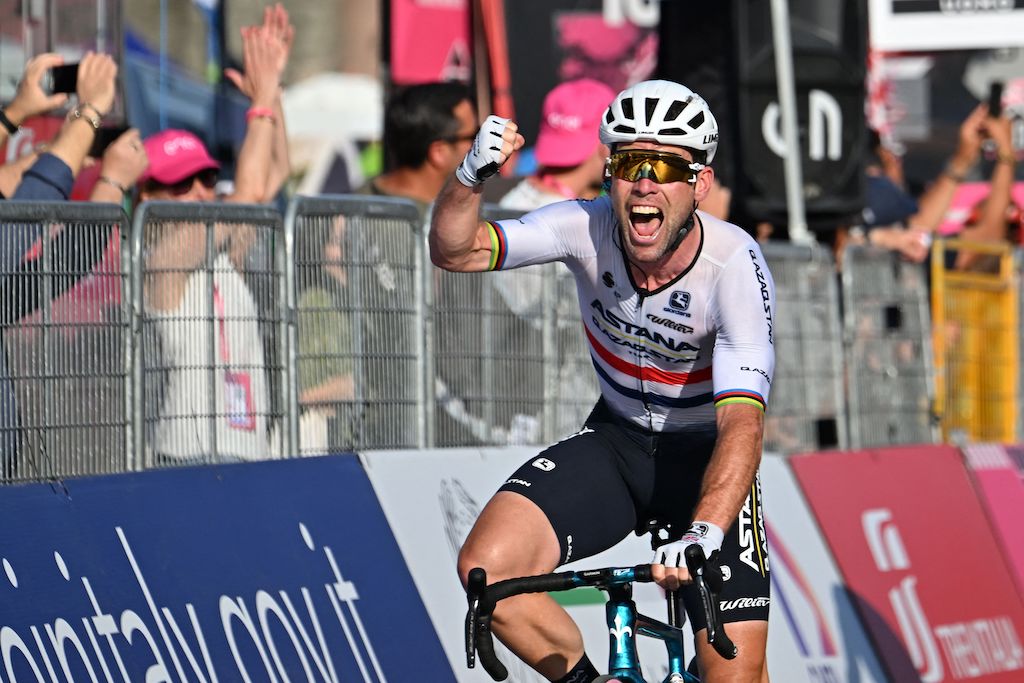
Yes, he did it! Against all the odds, and with many doubters – justifiably given the previous two years' misfortune and the 39-year-old's advancing years – Mark Cavendish produced a scintillating sprint in Saint-Vulbas to make it 35 Tour de France stage wins and finally top the longstanding record of Eddy Merckx.
Now Sir Mark Cavendish, he was heartbreakingly close to breaking the record in 2023 the day before he crashed out of the Tour with a broken collarbone.
The unfortunate circumstance can't dull the brilliance of the "Manx Missile" (copyright Phil Liggett), who also has 17 Giro d'Italia stage wins and three in the Vuelta, two overall Tour de France points classification wins, the World Championship title in 2011 and a victory in Milan-San Remo in 2009.
Additionally, Cavendish won the most prestigious Tour de France sprint finish, the final stage on the Champs Elysées, four years in a row.
The GOAT of men's sprinters, no question.
Peter Sagan
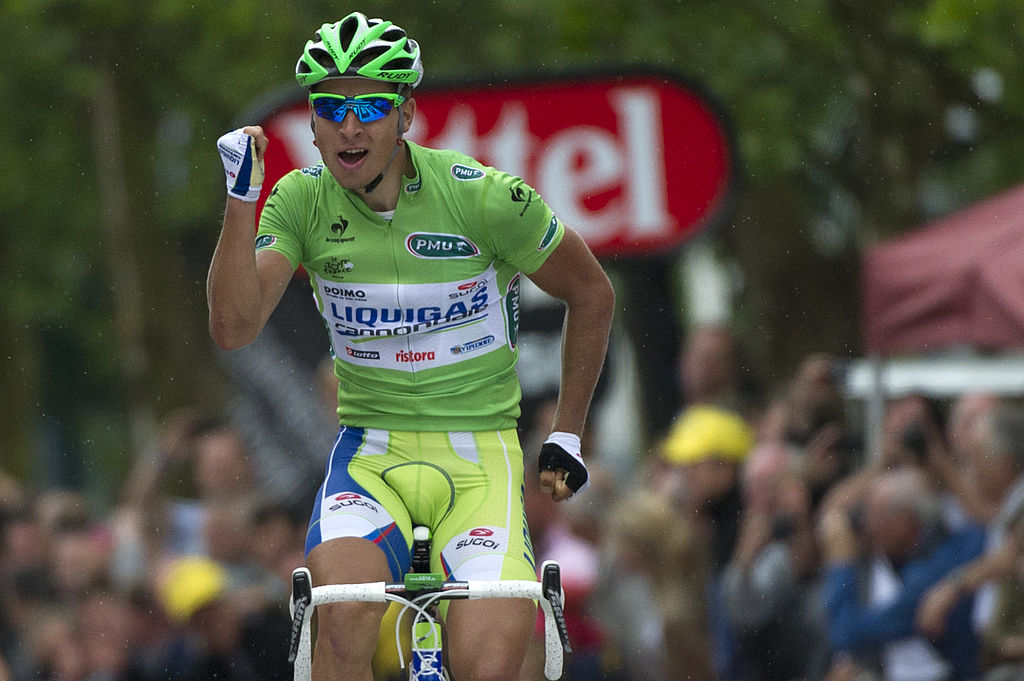
Peter Sagan claimed the points classification at the Tour de France seven times between 2012 and 2019 and won the World Championship title three years in a row – a record in itself.
The Slovakian was famous for his outrageous victory salutes, his public persona, and his signature no-hands wheelie.
Sagan won 12 stages of the Tour de France, two at the Giro d'Italia plus the points classification in 2021, and four in the Vuelta a España.
A versatile rider, Sagan also won Paris-Roubaix in 2018, the Tour of Flanders in 2016, Gent-Wevelgem three times as well as the overall classification of the Tour of California in 2015.
Erik Zabel
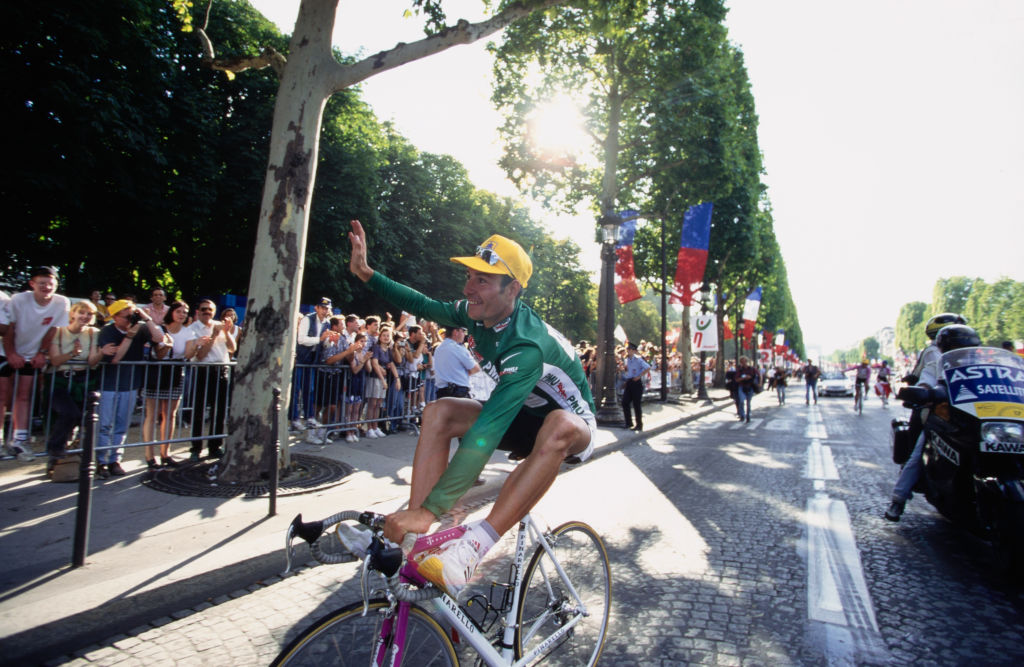
Before Sagan, Erik Zabel was the King of the Green Jersey with six consecutive points competition victories at the Tour de France. Zabel also claimed three points jerseys at the Vuelta and a total of 20 Grand Tour stages (12 at the Tour, 8 at the Vuelta).
The German, whose most successful years were spent with the Deutsche Telekom and later T-Mobile squads, also totalled nine Classic victories, including four Milano-Sanremo wins. It should have been five at La Primavera, but an unforgettable moment – which he would rather forget – came when he was caught on the line of the Via Roma by Oscar Freire in 2004, having raised his hands too soon.
Zabel continued his career until 2008 with Team Milram, competing alongside Alessandro Petacchi, before becoming a tactical consultant at Team Columbia and helping Mark Cavendish to his 2009 Milan-Sanremo win.
Freddy Maertens
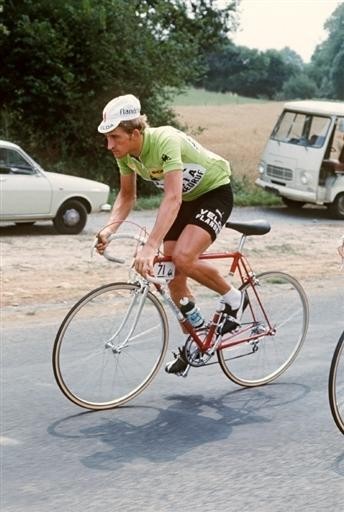
Brilliant Belgian Freddy Maertens amassed 55 victories in 1976 alone, a remarkable haul. That year, Maertens claimed eight victories at the Tour de France (tied with Merckx and Charles Pélissier for the most in a single Tour) and the following year, seven stages of the Giro d'Italia before abandoning the event at the beginning of the second week. Add to those figures the 13 Vuelta a Espana stages he also won in 1977 - which even made him a Grand Tour winner! - and his six consecutive stage victories at the Dauphiné Libéré in 1975, and you end up with certainly the greatest sprinter of the 1970s.
Maertens' top speed was legendary, and so was his open rivalry with compatriot Eddy Merckx. At the 1973 Worlds, Maertens and 'the Cannibal' both lost out in the final sprint. The recriminations were long-lasting. In 1976, Maertens took his revenge and the rainbow jersey, which he surprisingly won one more time in 1981 in a glorious but short come-back following several years of misfortune in the late '70s.
Djamolidine Abdoujaparov
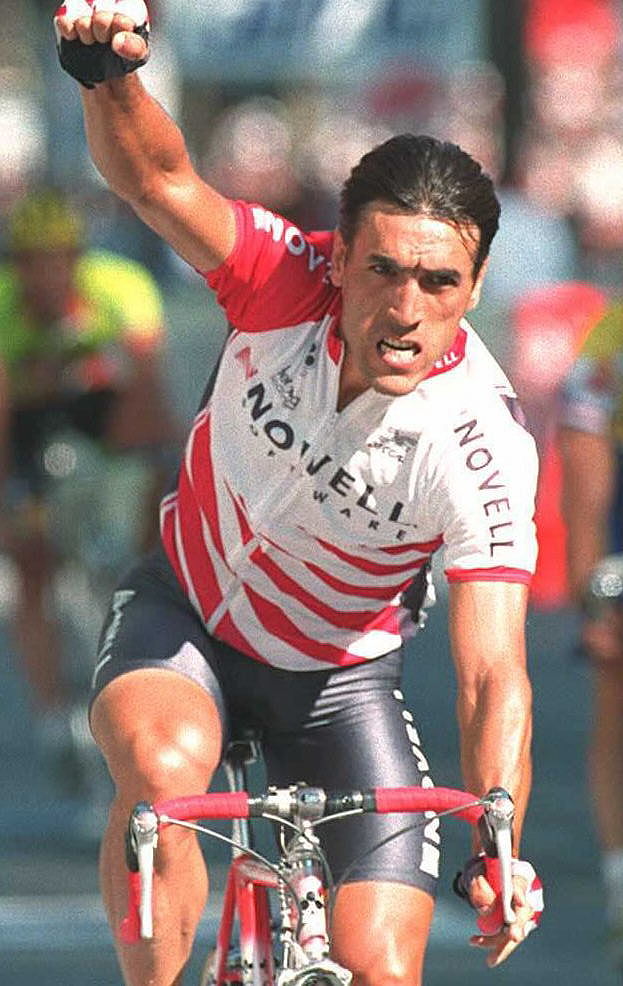
"The Tashkent Terror". His nickname says it all. Djamolidine Abdoujaparov was a feared man in the peloton of the early '90s, not only for his raw power in the last few hundred metres of a race, but also for his unpredictable trajectories which saw him burst to the finish with his head down between his shoulders, elbows out, possibly eyes closed.
His willingness to risk everything brought him a total of 17 Grand Tour stages and five overall points competitions (three at the Tour de France), but also a memorably dreadful crash on the Champs Elysées when he first won the green jersey in 1991. The Uzbek sprinter's wayward sprinting style never changed, however, as viewers – and fellow racers – held their collective breath during every sprint finish he was involved in. He ended his career in an equally contentious manner, failing multiple drug tests during his last pro season, 1997.
Sean Kelly
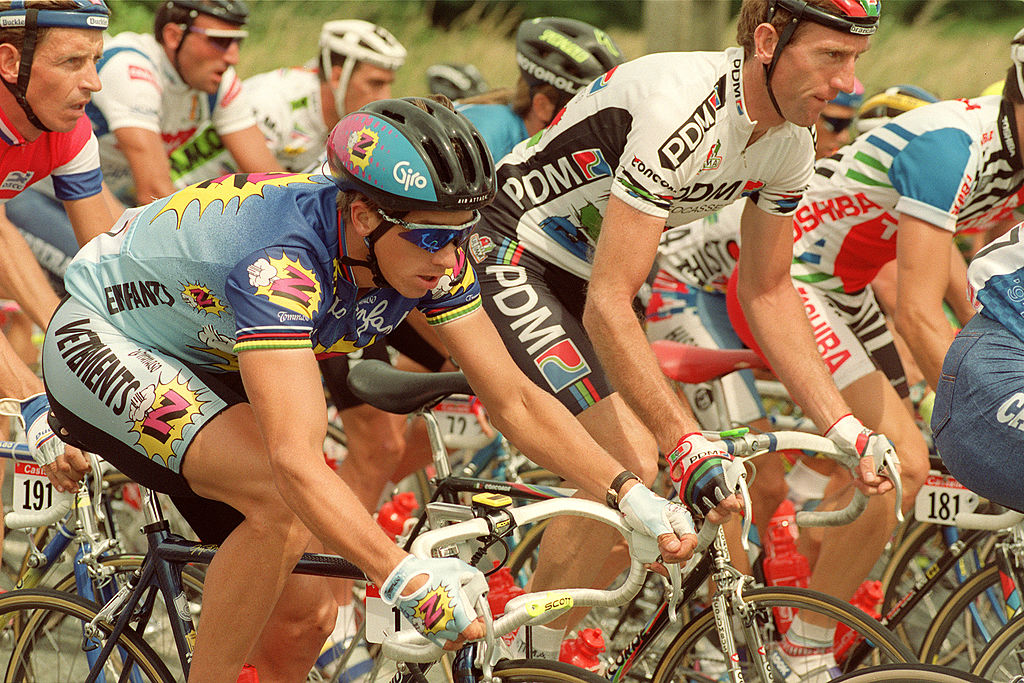
One of the most versatile riders in history, Sean Kelly won four green jerseys at the Tour de France, a total of 16 Grand Tour stage wins and another four points competitions at the Vuelta - of which he was also a general classification winner in 1988.
An Irish farmer's son, Kelly's ability to suffer in any conditions earned him a total of eleven Classic wins, from Giro di Lombardia (three times), Milan-Sanremo (twice), Liège-Bastogne-Liège (twice) and Paris-Roubaix (also twice). Kelly was able to shine on any terrain, in any weather.
He also won a total of 26 stage races, including an astonishing seven consecutive wins at Paris-Nice and four overall victories in the Tour of the Basque Country.
Robbie McEwen
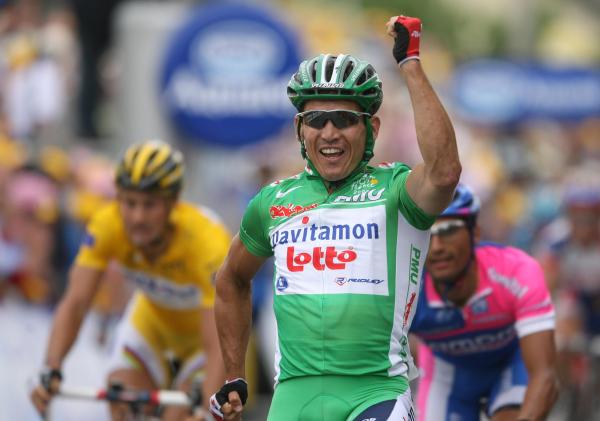
One of several highly impressive sprinters of the beginning of the millennium, Robbie McEwen could arguably be labeled as the most cunning and independent of them all. The Australian never truly relied on a lead-out train like some of his greatest rivals, yet still managed to pop up at the line, following his natural instinct for the best possible rear wheel. He won the Tour's green jersey three times, and a total of 24 Grand Tour stages.
McEwen may not have been the dominant sprinter during his most competitive years, but he was a consistent performer for over a decade, including racing 12 Tours de France.
Oscar Freire
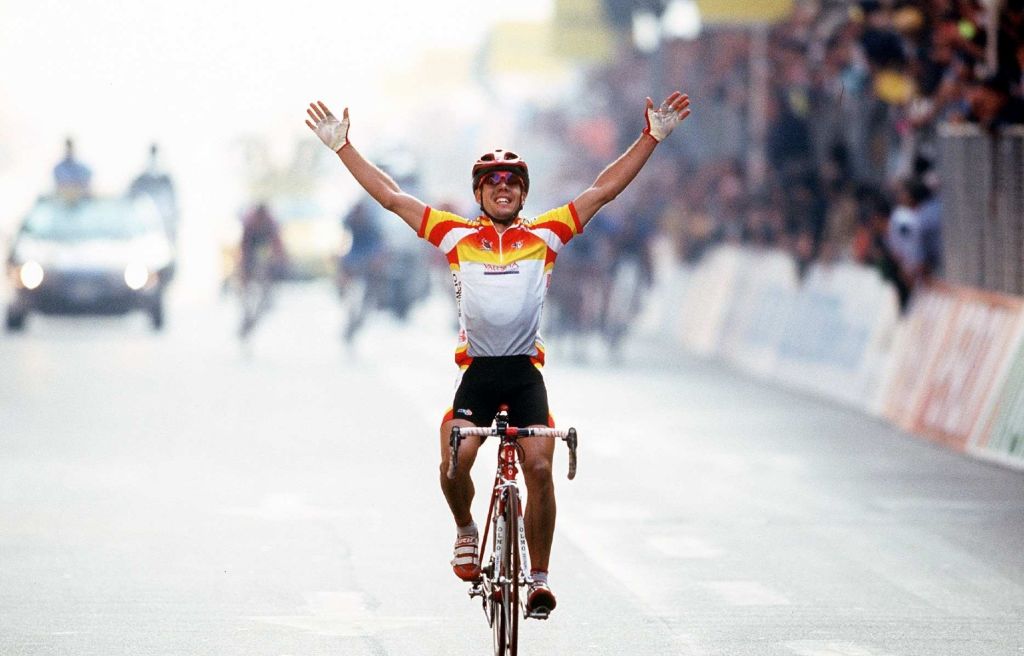
Also counting amongst the best tacticians of his fellow fast men is Spaniard Oscar Freire. Similarly to McEwen, the man who spent most of his career at Dutch team Rabobank, often caught his rivals off-guard (see Erik Zabel in Milan-Sanremo above). Freire is one of five riders to claim three World Championship titles, alongside Peter Sagan, Eddy Merckx, Rik van Steenbergen and Alfredo Binda.
Combined with six Classics wins, including three Milan-Sanremo victories, one overall green jersey win at the Tour and a total of eleven Grand Tour stages, Freire earns his spot among the greats.
Alessandro Petacchi
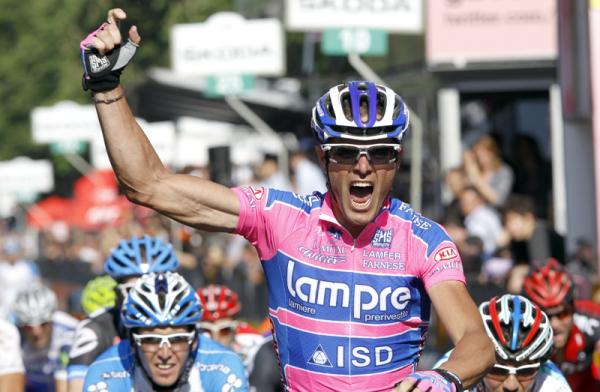
'Ale-Jet' seemed unstoppable in 2003, when 15 of his 24 victories were obtained at the three Grand Tours. One year later, he dominated the Giro d'Italia, taking an unbelievable nine stages alongside the maglia ciclamino in the 2004 edition. Petacchi was also very successful at the Vuelta, where he won a total of 20 stages from seven starts, plus the blue points jersey in 2005.
That same year, every sprinter's dream - and especially an Italian's - was achieved when he surged to victory on the Via Roma in Sanremo. But his second points classification jersey at the Giro in 2007 - and all this victories during that time - were annulled following a positive doping control for salbutamol and a one-year suspension.
Marcel Kittel
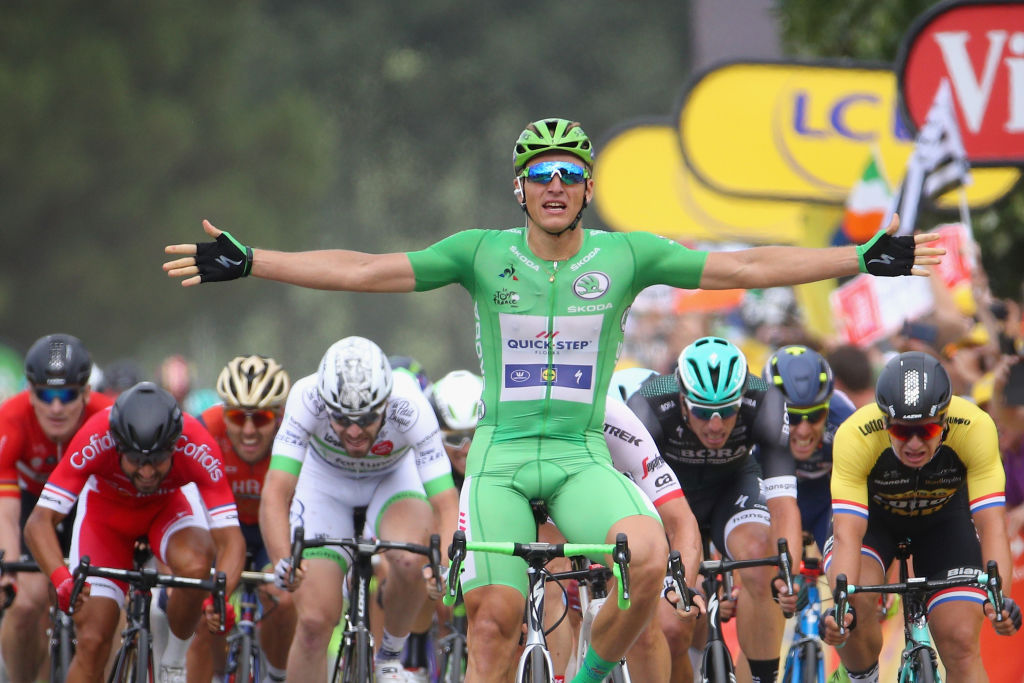
Less prolific than others on this list, possibly because he had the misfortune to share his peak sprinting years with Mark Cavendish, the man with the best hair in cycling made a Damascene conversion to sprinting having started out his career as a time trial specialist. It proved to be a solid choice, as Kittel led his underdog wildcard Argos-Shimano team to success at the Vuelta and Tour in following seasons.
Returning 14 Tour de France wins from four starts, his best haul came at the 2014 edition, with stages 1, 3 and 4 going to the German, along with the ultimate sprint in cycling on the Champs-Élysées. Four stages of the Giro and one at the Vuelta complete the Grand Tour palmarès, while he still holds the record for wins at Scheldeprijs, the unnoficial ‘sprinters’ Classic, with a remarkable five victories between 2012-17.
A vociferous anti-doping spokesperson, Kittel retired in 2019 at the young age of 31 with 89 professional victories to his name.
Get unlimited access to all of our coverage of the Tour de France - including breaking news and analysis reported by our journalists on the ground from every stage of the race as it happens and more. Find out more
Cyclingnews is the world's leader in English-language coverage of professional cycling. Started in 1995 by University of Newcastle professor Bill Mitchell, the site was one of the first to provide breaking news and results over the internet in English. The site was purchased by Knapp Communications in 1999, and owner Gerard Knapp built it into the definitive voice of pro cycling. Since then, major publishing house Future PLC has owned the site and expanded it to include top features, news, results, photos and tech reporting. The site continues to be the most comprehensive and authoritative English voice in professional cycling.
